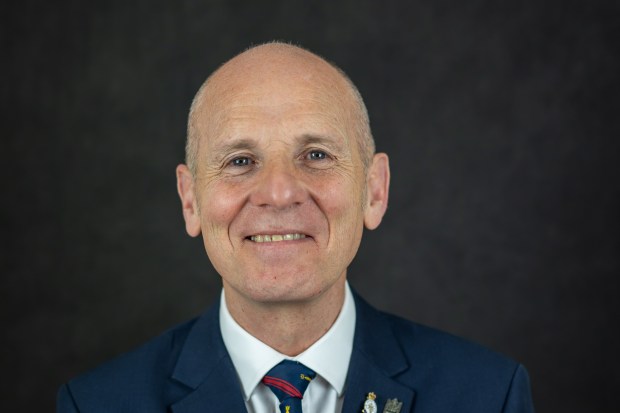HAVE you ever wondered if you’re richer than your neighbours?
Fascinating new data reveals how much the top 20% of earners have in income, property, savings, pensions and investments. Plus, a top financial planner explains how YOU can grow your wealth, whatever your financial situation.
Investment platform Hargreaves Lansdown has looked at how much the top 20 per cent of earners have in these categories by age and location.
Read on to find out how your finances shape up – and what you can do to become richer.
Savings
It can feel hard to save right now with the cost of energy, council tax and mortgages so high.
But saving even just a few pounds a month can add up over time.
On average, top earners have £30,799 in a savings account by the time they reach 39, according to Hargreaves Lansdown.
Those in London have £40,893 squirreled away, while wealthy workers in the North East have £24,741.
Surprisingly, by 49 these workers have only increased their savings by £3,800 – to an average of £34,599.
Londoners still have more stashed away than high earners in other areas, giving them a pot worth £50,542.
Meanwhile, in the North East the picture remains unchanged, meaning a typical wealthy worker has just £24,912 in a savings account.
But by retirement age it’s a different story.
Those in the North East have £72,176 in savings at 50, far more than a typical London worker, who has £51,162.
Salary
Imagine earning £100,000 by the time you’re in your 30s.
For wealthy workers across the UK this is a reality – as the national average salary for people in this group is a huge £105,713.
In comparison, the average person earned £37,648 in the year to June, according to the Office for National Statistics.
Unsurprisingly London has the highest salaries, with wealthy earners taking home £122,690 a year.
As they progress in their careers the average salary of these workers rises to £122,753 in their 40s before levelling off to £107,399 in their 50s.
As they approach retirement, high earners in the South East have the highest pre-tax salary – at £126,563 a year.
But in the North West workers are not far behind, with an average salary of £97,709 by 50.
Sarah Coles said: “In London salaries peak in their 30s, partly because high earners will often move out of London as they get older.
“Elsewhere, in seven out of 11 places it peaks in people’s 40s, which is when they are making peak earnings.
“And in the South East it peaks at 50s and over, partly because lots of those super-high earners keep moving out of London for the Home Counties, pushing average earnings up.”
Pension
Knowing how much to have in your pension to be rich in retirement can feel like gazing into a crystal ball.
But Hargreaves Lansdown’s figures reveal how gradually building wealth can leave you with a pot of £833,678 by the time you’re over 50.
In their 30s, wealthy workers typically have £169,465 in their pension pot, which is enough to give them a basic retirement, with one holiday a year.
Savers in Yorkshire have got the biggest pots – with £249,384 squirrelled away.
I built my wealth after my military career

JOE O’Connor has steadily built up his wealth to become a millionaire since leaving the army 25 years ago.
The 63-year-old, from Chester, joined the army at 18 and went on to work in bomb disposal for the Corps of Royal Engineers.
But his army career was cut short after he broke his neck while on deployment.
In between deployments the father-of-three had been working as a financial advisor and helped clients with commercial deals, investments and pensions.
While in the army Joe also bought his first property, a house in Kent, for £52,000.
Over the following years he continued to build up his property portfolio and he now owns 20 houses and a centre to rehabilitate veterans.
“I love developing,” Joe said. “I qualified as a plumber by fitting in the military and I also come from a family of builders.
“I understand the game and look for properties with potential.”
Realising the importance of saving for his future, in 2007 Joe opened a self-invested personal pension, which he pays lump sums into each year depending on his tax bill.
Joe has also opened an Isa and tries to pay in the maximum allowance of £20,000 a year when he can.
He also donates 10% of his earnings to military charities including Transformation for Veterans and the Royal British Legion, which also help him to reduce his tax bill.
“I’m in a very fortunate position where I’m comfortable,” he said.
“But I’m always driving to get more. I’m on a mission to help 1 million veterans but I know that takes a lot of time, money and effort.
“I am now able to focus on my mastermind programme for veterans and my podcast, Veterans for Success.”
Meanwhile, those in the East Midlands have got just £60,644 in their pot by the time they reach 39.
In comparison, people in their 40s have pensions worth £467,888.
Surprisingly, workers in this age group who live in London have the smallest pots of any region in the UK – with £292,330 saved.
In contrast, those in the North East have saved £691,446 by the time they hit 49.
Saving consistently into a pension pot and the power of compound interest will have helped workers in their 40s to build up such sizable pots.
Compound interest is when you earn interest on the money you have paid into your account and the gains you’ve made from previous years.
That’s why saving into your pension over several years can give your money the best chance to grow, which could give you a bigger return in the long run.
By the time they reach 50 the top fifth of workers have an average of £833,678 in their pension – more than enough for a comfortable retirement including exotic holidays, taxis and takeaways.
Sarah Coles, head of personal finance at Hargreaves Lansdown said: “The top fifths of earners have built really large pension pots.
“A household of high earners in their 50s and over in both the South East and Wales have average pensions worth over £1million.”
But she warned that while these figures are a useful yardstick, it’s important not to look at them and think there is no way to get there, so you should give up.
Instead, check how much you are saving into your pension each month and if you can afford to increase this amount.
You should also do a pension forecast to check how much your pot could be worth by the time you reach retirement.
Property
Owning your own home is something we all dream of having one day – but how much do you need to make it a reality?
On average, top earners have £152,022 in property by the time they reach 39.
In London the number is the East of England the figure is slightly higher, at £227,197.
In the North East, where property is cheaper, wealthy workers have an average of £74,357 in property.
Meanwhile, by their 40s these workers have £260,745 in property – which is almost enough to own an average family home outright.
But in London, where property is far more expensive, a typical high earner has £397,945 in property.
This is £206,285 more than someone in the North East, who has £191,660 in a house.
Sarah Coles explains: “The top 20% in the North East will live in expensive houses, but they don’t cost anything like as much as the expensive houses in London where the best-paid Londoners live.
“It means Londoners have more of their money tied up in property and those in the North East have more in things like savings and investments.”
By their 50s the highest earners have £359,925 in property wealth – enough to have paid off the mortgage on a family home.
But in London they have a hefty £734,435 in property – a sum many of us could only dream of.
How to boost YOUR wealth and get rich too

IAN Futcher, financial planner at Quilter, helps wealthy clients manage their money every day.
Here he explains his top tips to help you get on top of your finances and boost your wealth.
Becoming wealthy doesn’t require winning the lottery. It starts with taking control of your money today.
People often think of wealth as a number. A six-figure salary or a million-pound portfolio. But true wealth is about having freedom and security.
For some, that might mean owning a home and being mortgage-free by retirement. For others, it could be having enough invested to stop working early or help your children.
Review your finances
Start by getting a grip on your finances.
Understand what’s coming in and what’s going out, pay off any high-interest debt and build an emergency fund.
Financial advice can help you make the most of what you have, set realistic goals, and avoid costly mistakes.
Invest for your future
From there, the goal is to move from saving to investing.
Over time, investing in a pension or a stocks and shares Isa gives your money the best chance to grow faster than inflation.
Make the most of your pension
And if you’re employed, make the most of your workplace pension.
Turning down employer contributions is like walking away from free money.
Get started now
The sooner you start, the better. Time in the market matters more than timing the market.
Even if you can only afford small contributions into a pension or Isa, those regular investments add up, especially when you factor in compound growth and tax benefits.
The good news is that it’s never too late to start building wealth.
But in Scotland this same group of earners have just £228,569 in property as it is much cheaper to own your own home in this region.
Sarah adds: “The highest earning Londoners have a huge amount of property assets as they get older, because their homes are worth so much more than elsewhere in the country, so as they pay down their mortgages, their property assets grow.
“With the average property price in London at £561,309, the average home lived in by the highest-earning 20% will be worth far more.”
Getting on the property ladder can feel daunting but there are several schemes to help first-time buyers.
A Lifetime Isa is an account that you can use to save up for a house deposit.
You must be over 18 but under 40 to open the account and can get up to £32,000 toward the cost of your first home.
You can pay in up to £4,000 a year into the account and the Government will add 25% on top.
But you can only use the account to buy a house worth less than £450,000.
There is also a penalty if you take money out of the account for any reason other than buying a home or retirement.
Another Government scheme to help you get on the ladder is the Mortgage Guarantee Scheme.
The scheme gives first-time buyers and home movers the chance to get on the ladder with a 5% deposit and a 95% mortgage.
To be eligible the property must be your main home, worth £600,000 or less and not be a new build.
Or if you are not able to afford a whole house then you could buy part of it and pay rent on the remaining amount.
Shared ownership allows you to buy anything from 25% to 75% of a property and co-own it with a housing association.
You pay your mortgage on the bit you own and the pay rent to the housing association on the rest.
Investments
Investing is often an afterthought for workers as they focus on buying their own home or building up their savings.
But it can be a vital tool to help you build wealth for retirement or a pot to pass on to your children.
The same is true of high earners in their 30s, who don’t have any investments, Hargreaves Lansdown said.
Meanwhile, in their 40s these workers had an average of just £1,474 invested, although this rose to £7,888 for wealthy workers in the South East.
Even though they didn’t start early, by the time they are in their 50s wealthy workers have around £25,474 invested, giving them a tidy sum.
Sarah Coles explains: “Among those in younger age groups, the area they’re likely to fall short on is investments.
“On average those in their 30s have no investments, while in their 40s, on average people only have investments in seven out of 11 areas, so it takes until their 50s for all areas to have investments.
“At this stage, however, some of the sums are really hefty.”
That means there’s still time for you to start investing and build up a big nest egg too.
Jason Hollands, managing director of corporate affairs at Evelyn Partners, said it is never too late to start, but the longer you delay the harder your money will have to work for you.
He said: “Besides paying into a workplace pension, most people only begin investing in earnest from their mid-forties or fifties when their children have flown the nest, their career has reached a peak, and they have made a dent in repaying mortgages.”
Make sure you have built up an emergency fund of up to six months of expenses before you begin to invest.
One way to get started is to open a stocks and shares Isa.
You can do this with your bank or through an investment platform, such as Hargreaves Lansdown or Interactive Investor.
Analysis by Seven Investment Management (7IM) for The Sun reveals that you could turn £10 a month into almost £2,000 in ten years.
Meanwhile, you could have £32,635 after investing for 40 years.
Always remember that the value of your investments can go up and down.
Investing for the long term is the best way to even out these dips in the market and help your money to grow.
Do you have a money problem that needs sorting? Get in touch by emailing money-sm@news.co.uk.
Plus, you can join our Sun Money Chats and Tips Facebook group to share your tips and stories


















